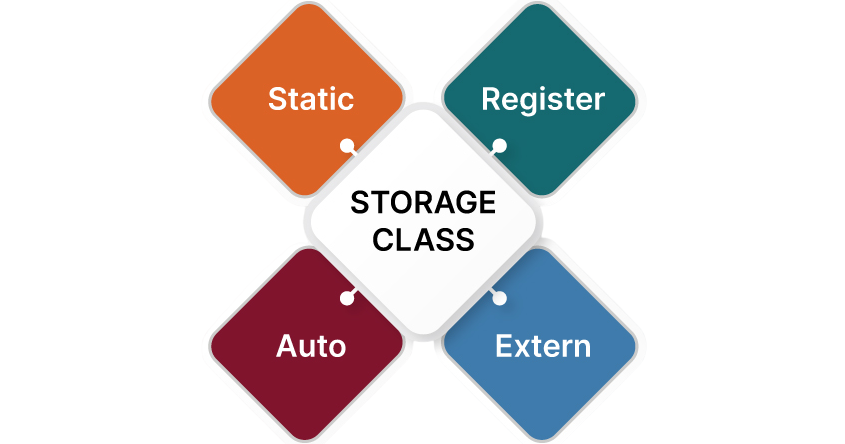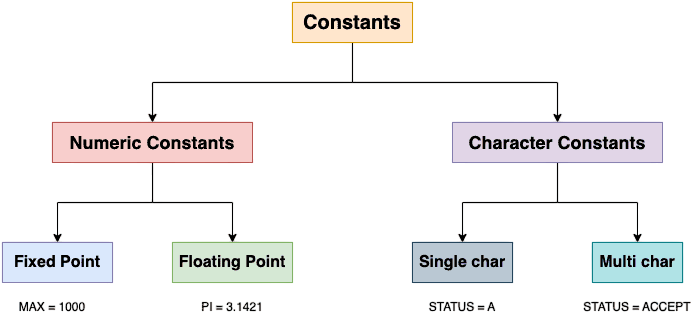
- What is an Enum?
- Syntax and Declaration
- Default Values and Assignment
- Using Enums with Switch Statements
- Scope and Storage
- Type Safety and Enums
- Enumerated Constants
- Comparing Enums with #define
- Nested Enums
- Enum in Structs and Functions
- Conclusion
What is an Enum?
An enum in C, short for enumeration, is a user-defined data type that assigns names to a set of integral constants, making the code more readable and maintainable. Instead of using arbitrary numbers to represent values like states, directions, or options, enums allow programmers to define a collection of named values. To complement such structured logic with intuitive user interfaces, enrolling in Web Developer Training equips you with the skills to translate backend clarity into frontend usability through clean layouts, responsive design, and interactive components. This results in code that is easier to understand and debug. For example, using MONDAY, TUESDAY, etc., is more descriptive than using numbers like 0, 1, and so on.
To Earn Your Web Developer Certification, Gain Insights From Leading Web Developer Experts And Advance Your Career With ACTE’s Web Developer Courses Today!
Syntax and Declaration
Declaring an enum in C follows a straightforward syntax. The enum keyword is used, followed by the name of the enumeration and a list of constants enclosed in curly braces. For example, to complement such structured data declarations with high-level container types, exploring OOPs Concepts in C++ reveals how to module enable efficient data organization, manipulation, and access.
- enum Color {
- RED,
- GREEN,
- BLUE
- };
This declaration defines RED, GREEN, and BLUE as named constants that by default take on the values 0, 1, and 2 respectively. A variable of this enum type can be declared as: enum Color myColor, It is also common to use typedef to simplify enum usage:
- typedef enum {
- RED,
- GREEN,
- BLUE
- } Color;
- Color myColor;
This approach eliminates the need to use the enum keyword each time you declare a variable.
Default Values and Assignment
When you declare an enum in C, the first identifier in the list is assigned the integer value 0 by default, and the values increase by 1 for each subsequent identifier. For example, to complement such indexed data handling in C with high-level iteration techniques, exploring C++ Programs reveals how to simplifies loop construction by pairing each item in an iterable with its index, enhancing readability and control.
- enum Direction {
- NORTH, // 0
- EAST, // 1
- SOUTH, // 2
- WEST // 3
- };
Once a value is assigned, the next constant will automatically increment from that value unless specified otherwise. This feature is useful for defining non-continuous constants, such as HTTP status codes, device error codes, or signal types.
Using Enums with Switch Statements
One of the primary advantages of enums is their compatibility with switch statements. This combination allows developers to write more readable conditional logic without using numeric values directly. To align such structured programming practices with career growth, exploring how to Become a Software Engineer offers a roadmap for mastering core concepts, choosing the right programming languages, and building a strong foundation in software development through formal education or coding bootc
- enum Mode {
- OFF,
- ON,
- STANDBY
- };
- void setMode(enum Mode m) {
- switch (m) {
- case OFF:
- printf(“Device is off\n”);
- break;
- case ON:
- printf(“Device is on\n”);
- break;
- case STANDBY:
- printf(“Device is in standby mode\n”);
- break;
- }
- }
This usage clearly outlines the logic for each state and is much easier to understand and maintain than using raw integer values.
Would You Like to Know More About Web Developer? Sign Up For Our Web Developer Courses Now!
Scope and Storage
In C, the scope of an enum can be either global or local, depending on where it is declared. If declared outside of a function, the enum is globally accessible. If declared inside a function, its scope is limited to that function. Although enums provide symbolic names, they are internally stored as integers.

To complement such backend logic with visually structured front-end design, enrolling in Web Developer Training equips you with the skills to build intuitive interfaces that translate complex data structures into user-friendly experiences. The compiler usually uses the smallest possible integer type that can represent all enum values. However, the C standard does not mandate this, and the actual storage size may vary by compiler.
Type Safety and Enums
Enums in C do not provide strict type safety. This means that enum constants are essentially treated as integer values, and you can assign any integer to an enum variable. To understand how type safety and structured programming evolve in modern development, exploring Factorial Program in C reveals how Java enforces stricter type rules and supports robust application design across domains like enterprise systems, mobile apps, cloud platforms, and embedded technologies.
- enum Color { RED, GREEN, BLUE };
- int a = RED; // Valid
- enum Color c = 5; // Also valid, though semantically incorrect
This behavior can sometimes lead to bugs if values not defined in the enum are used. In contrast, some modern languages like C++11 introduce enum class to enforce type safety.
Are You Interested in Learning More About Web Developer? Sign Up For Our Web Developer Courses Today!
Enumerated Constants
Enumerated constants are evaluated at compile-time and cannot be altered at runtime. This makes them highly efficient for use in switch-case blocks or conditional logic. They provide better readability than #define constants and are grouped logically. To complement such compile-time efficiency with dynamic text handling, exploring C++ Project Ideas reveals how to memory optimization techniques form the backbone of robust Java applications.

- typedef enum {
- LOW = 1,
- MEDIUM,
- HIGH
- } Severity;
Enumerated Constants declaration allows you to write code like Severity s = HIGH; which is self-explanatory compared to using numbers.
Comparing Enums with #define
In C, #define is often used to create symbolic constants. However, comparing enums provides several advantages over #define:
- Type Checking: Enums provide limited type safety, while #define does not.
- Scope Control: Enum constants can be limited to function scope; #define is always global.
- Debugging Support: Enum names appear in debuggers, making debugging easier.
- Organization: Enums logically group related constants.
- #define RED 0
- #define GREEN 1
- #define BLUE 2
- // Versus
- enum Color { RED, GREEN, BLUE };
Using Comparing Enums makes the code easier to manage, particularly in large projects.
Nested Enums
Although C does not support nested enums in the same way as some object-oriented languages, you can simulate nesting by placing enums inside structures. To understand how modern languages handle such structural patterns, exploring Friend Function in C++ reveals how to dynamic flexibility approach data modeling, type safety, and code organization from fundamentally different paradigms.
- struct Device {
- enum State {
- INIT,
- RUNNING,
- STOPPED
- } currentState;
- };
This approach helps keep related constants encapsulated and avoids name collisions in larger programs.
Enum in Structs and Functions
Enums can be used effectively inside structures to define categorical data, and can also be passed to or returned from functions. Here’s an example:
- typedef enum {
- MALE,
- FEMALE
- } Gender;
- struct Person {
- char name[50];
- Gender gender;
- };
- void printGender(Gender g) {
- if (g == MALE)
- printf(“Male\n”);
- else
- printf(“Female\n”);
- }
This technique improves type definition, enforces usage patterns, and makes functions more expressive.
Conclusion
Enums in C are a powerful yet simple way to handle groups of related constants. They contribute to more readable, maintainable, and error-resistant code. Although enums in C lack strict type safety, their integration with switch statements and structures makes them highly useful in various programming scenarios. To complement such low-level logic with high-impact visual design, enrolling in Web Developer Training equips you with the tools to build intuitive, user-friendly interfaces that bridge backend functionality with frontend engagement. By leveraging enums, developers can eliminate magic numbers, reduce bugs, and improve the clarity of their logic. With proper understanding and usage, enums can significantly enhance code organization and quality in both small scripts and large applications.





